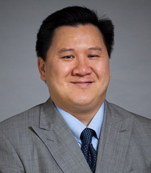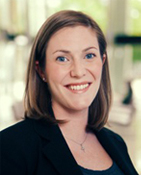© 2013 The Texas Lawbook.
By Mark Curriden
Senior Writer for The Texas Lawbook
NEW ORLEANS (March 6) – T. Boone Pickens and Oklahoma State athletics officials took their fight to recover more than $33 million from an insurance company and its agents to the U.S. Court of Appeals for the Fifth Circuit.
A three-judge panel is being asked by Pickens and Cowboy Athletics Inc. to reverse last year’s decision by U.S. District Judge Jorge Solis of Dallas to dismiss the case before trial.
The Fifth Circuit’s West Courtroom at 600 Camp Street in New Orleans was packed Wednesday with Dallas lawyers representing the various parties involved in the case.
James Ho, who is representing Pickens and Cowboys Athletics Inc., told the judicial panel that Lincoln National Life Insurance and its brokers and agents lied multiple times to convince his clients to purchase $10 million life insurance policies on 27 elderly OSU alumni with the expectation that the athletic program would reap hundreds of millions of dollars from their deaths.

The program became known as “The Gift of a Lifetime,” which OSU officials promoted nationally as a huge potential revenue source for the school’s athletic program.
Ho said that Lincoln’s agents claimed to have developed a “matrix” enabling them to identify people who would die sooner than insurance companies predicted.
The annual premiums for the 27 insurance policies were about $16 million, but the potential benefits ranged from $157 million to $350 million.
In 2009, nearly three years into the “investment strategy,” a problem surfaced: More than $33 million in insurance premiums had been paid by Pickens and another $16 million payment was due, but Cowboy Athletics hadn’t received a dime back.
Why?
None of the 27 had died.
“The investment strategy was a fraud from head to toe,” says Ho, a partner at Gibson, Dunn & Crutcher. “The agents sold a fraudulent product and then resorted to a series of additional lies to seal the deal.”
But only 12 seconds into Ho’s oral argument Wednesday, Judge Jerry Smith cut him off.
“I’ve read the briefs and know this already,” Judge Smith said. “Your client wants to have it both ways. They collect if someone dies and want a refund if no one dies.”
In fact, Judge Smith interrupted Ho eight more times and appeared very hostile to the appellant’s position. At one point, Judge Smith cut in again, saying, “Let me ask this question a third time…”
To his credit, Ho stayed on message and didn’t seem distracted. Probably because he clerked for Judge Smith more than a decade ago.
“[Lincoln and its agents] assured Cowboy that a reputable, independent actuarial firm, Lewis & Ellis, endorsed the actuarial projections underlying the investment strategy, when, in fact, the firm has serious reservations about the analysis,” says Ho.
“They represented that insurance carrier Transamerica was willing to underwrite the policies as an investment strategy, when, in fact Transamerica rejected the strategy,” he says. “They claimed their only interest in the sale was an administrative fee, when, in fact, they would receive millions in commissions.”
Ho also argued that the agents handling the deal “doctored the numbers” in order to get the sale. He said when Pickens and Cowboy asked the agents to produce the “matrix,” the agents responded that it wasn’t on paper but in their head.
“Their predictions about the future were not merely flawed – they were based on fraud,” he says. “Agents do not have to predict the future correctly, but they cannot lie about it.”
Ho claims that Judge Solis of Dallas improperly dismissed Pickens’ claims last year and that the case deserved to be heard by a jury.
Four lawyers representing the defendants – Lincoln, Management Compensation Group, John Ridings Lee, James Turner, Larry Anders and Summit Alliance – split 30 minutes of oral argument.
Lincoln National hired former U.S. Solicitor General Paul Clement to argue its position. Clement, now a law professor at Georgetown Law Center, has argued many cases at the Supreme Court of the U.S. Last year, he represented 26 states in their failed effort to convince the Supreme Court to have the federal Affordable Care Act declared unconstitutional.
Clement focused most of his nine minutes of oral argument on the contract’s “free look” clause, which, under Oklahoma law, allows the policyholder to cancel the policy within 10 days of receiving a copy of it.
Pickens and Cowboy claim they didn’t receive a copy for two years and that they cancelled it within the 10 days after they did get it in 2009.
But Clement argued that OSU athletics officials signed a waiver, saying they acknowledged receiving the policy but wanted the agents to retain possession of it.
“The certificate they signed shows they received notice and that they had a right to review the policy anytime,” Clement argued. “If nobody dies, they benefit from their own misrepresentation. Its heads, they win, tails we lose.”
But the defense lawyer who seemed to make the most inroads with the three judges was Kendal Simpson, a fourth year associate at Dallas-based Reese Gordon Marketos, who represents MCG and Lee.

“None of these allegations of fraud are supported by the record,” Simpson argued. “If that’s the argument they are hanging their hat on, then their claim fails.”
Simpson, a 2008 graduate of SMU Dedman Law School, told the judges that the trial lawyers for Pickens and Cowboy Athletics didn’t make the specific allegations of lies and fraud in their original pleadings and, as a result, it is improper for them to raise them now at the appeals court.
In her written brief, Simpson points out that Pickens claims in his autobiography, The First Billion is the Hardest, that he “came up with a plan,” which Pickens is now attacking as a fraud.
“Appellants’ fraud claim morphed entirely, based on four alleged misrepresentations never pleaded or presented to the district court,” Simpson wrote. “Fifth Circuit law is well-established, however, that this Court will not consider theories of liability not pleaded in the district court and presented for the first time on appeal.”
Other Dallas lawyers involved in the case are James Renard of Bickel & Brewer, Joel Reese and Bradley Gordon of Reese Gordon, Andrew Jubinsky of Figari & Davenport, and Clinton Howie of Stacy & Conder. Nearly all of these lawyers filled up Southwest Airlines flight 362’s Business Select seats Wednesday from New Orleans back to Dallas.
© 2013 The Texas Lawbook. Content of The Texas Lawbook is controlled and protected by specific licensing agreements with our subscribers and under federal copyright laws. Any distribution of this content without the consent of The Texas Lawbook is prohibited.
If you see any inaccuracy in any article in The Texas Lawbook, please contact us. Our goal is content that is 100% true and accurate. Thank you.
